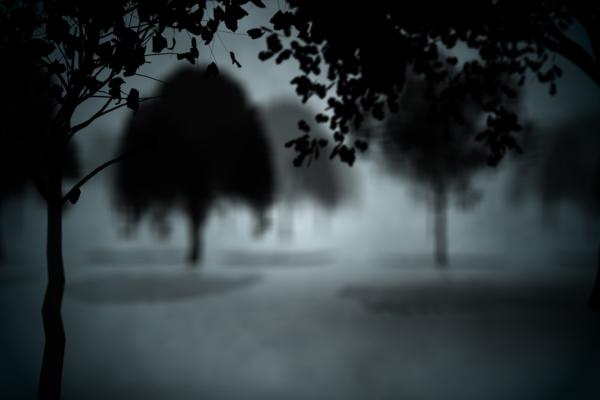I’ve always had a curious sort of sympathy for the bad guys. I cried when King Kong died. I wept at Darth Vader’s demise. And I felt like the whole melting thing was a little bit harsh for the Wicked Witch of the West.
Maybe they didn’t really want to be bad. Maybe they were just written that way. Could be that they had a rough childhood, or people made fun of them for being green, or big and hairy, or breathing through a big, black mask. I mean, imagine that on the playground …
Ever since my childhood I’ve felt more comfortable in darkness than most kids seemed to as well. My 10-year-old son won’t even go into any unlit room in our house without being accompanied by our dog, Maggie. But I actually enjoyed being in the dark. It seemed like the one place where I could let the otherwise literal, concrete parts of my brain take a rest, and allow my imagination to run wild.
Theologically, we’re taught to hate, or at least fear, the darkness. We are children of light, God called light into being, and it was from this light that all things were formed. So what use do we have for darkness?
Theologian Barbara Brown Taylor explores this very question in her new book, Learning to Walk in the Dark. In it, over the course of four years, she does just that. She makes a spiritual practice of taking midnight walks; she plants a night garden; and she even has a discipline of unplugging all powered items in her home after sunset, recognizing that, even when we’re in relative darkness, it’s hardly ever really dark.
She took many valuable lessons away from her time in the dark. For one, she recognized that, rather than distancing ourselves from darkness, it is something we need to enter into head-on, immersing ourselves in the unknown to explore what it is we expect to find there. It is, after all, in fearing the unknown that we give it any real power. But if we fumble around and discover in time that the darkness is not as rife with unfamiliar terrors as our dreams have suggested they are, we expand the landscape of our daily experience by half, at least.
Taylor also shares some revelations that I found particularly fascinating. She points out that God and darkness must conspire for life itself to be possible. Consider the darkness of the mother’s womb, or the grave-like solitude of a seed, buried beneath the ground. Or consider the darkness of the tomb for the days between Jesus’ death and resurrection.
Such things don’t happen in the naked light of day. They can’t. They feed on the darkness ultimately to spring forth into life.
As one who seeks to embrace Walter Wink’s revolutionary notions of nonviolent engagement with oppressive and violent systems or people, this perspective on darkness also is helpful. There’s a part of us that wants to see the things we fear, or that threaten us, extinguished. We want them to go “away,” by whatever means necessary.
But Wink says that, for true Gospel-inspired liberation from the sinful systems that bind us to have a chance, we must hold out the audacious hope that oppressor and oppressed can – and will – coexist in peace, that lion and lamb will not fight it out to the death, but that they will lie down together.
For this to happen, we must cultivate in ourselves a compassion for the mind and heart of the darkness. We have to see part of ourselves in it, and we have to find some comfort dwelling with it, if not in it. If our goal is peace, rather than victory, it seems necessary for God’s kingdom to be more fully realized in our midst.
Christian Piatt is a Sojourners Featured Writer and an author, editor, speaker, musician, and spoken word artist. He is director of church growth and development at First Christian Church in Portland, Ore. Christian is the creator and editor of Banned Questions About The Bible and Banned Questions About Jesus. His memoir on faith, family and parenting is called PREGMANCY: A Dad, a Little Dude and a Due Date.
Image: Dark gothic scene, wavebreakmedia / Shutterstock.com
Got something to say about what you're reading? We value your feedback!
